‘Silicon Valley isn’t the tech world’s only model of inspiration!’
Sep 28, 2021
6 mins
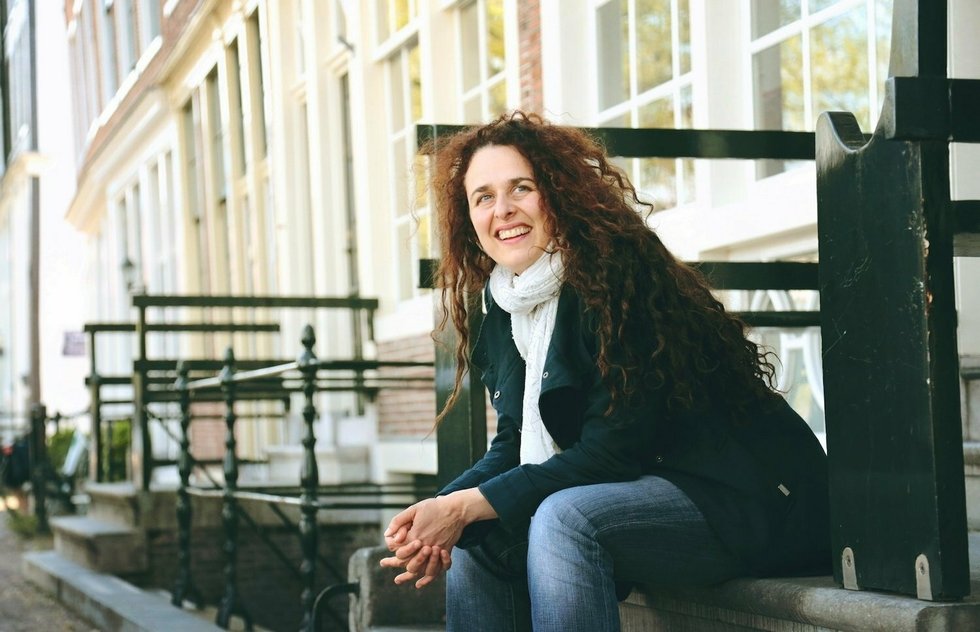
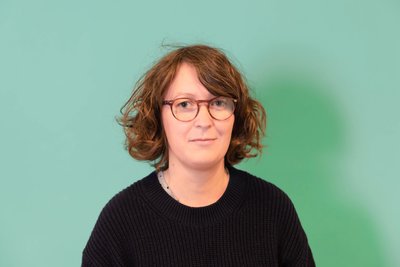
Tech Editor @ WTTJ
*If there’s one thing that stands out in the career of developer Agnès Crepet, it’s her activism. Crepet graduated with a degree in software engineering and her first job was as a Java developer in banking. But after meeting some inspiring developers on a round-the-world trip, she had an epiphany: she would use her tech prowess for the common good. Now head of software longevity and IT at Fairphone, the Dutch sustainable smartphone manufacturer, Crepet has joined the fight against planned obsolescence. In this interview, she discusses why she took up the cause and how she helps to make the world a little better every day.
*
You are head of software longevity and IT at Fairphone. Could you explain what that involves?
Of course. I originally joined Fairphone to do traditional back-end development. But as I’ve always been drawn to anything software-related, I soon began to work on smartphone operating systems (OS) such as Android. As for “longevity”, I immediately wanted to put it in my job title because our OS work at Fairphone directly affects the fight against planned obsolescence in mobile phones.
And that’s a real issue. A study by the European Commission estimates that 20% of users change smartphones due to a problem with the software. From one day to the next, the OS installed on a smartphone can stop updating. People can’t use their apps because they are no longer compatible with the older versions of the OS. This is a typical scenario. Smartphone manufacturers limit the number of possible updates because supporting a large number of versions would mean optimizing the device’s performance upstream. And, perhaps more importantly, taking off these limits would mean selling fewer phones.
That has serious consequences, not only for the environment but for the security of user data. For example, after three years, Google no longer updates and corrects old versions of Android. As a result, those phones are more vulnerable to viruses.
What can be done to improve smartphone longevity in concrete terms?
My job is to ensure that the performance of Fairphone phones remains optimal with new OS updates such as Android. That allows our users to keep their phones for at least five years to seven years, which is a big improvement considering the average lifespan of other manufacturers’ phones is less than two years. We know that 50% of people who bought the Fairphone 2 when it was released in 2015 are still using it today. Those are encouraging results. Other teams are working to make phones more modular and therefore easier to repair. It’s crazy when you consider that people change phones just because their battery no longer works, even though a replacement battery is only about €30 euros ($35)!
It was the philosophy behind open source that inspired me to become a developer. I wanted to contribute to that world: a world where knowledge is shared, for the common good.
The fight against planned obsolescence is one of Fairphone’s core values. That’s what made me want to join. And this commitment goes even further. As a Fairphone employee, I’m part of a social enterprise, which has a special status in the Netherlands. For Fairphone, EBITDA [earnings before interest tax, depreciation, and amortization] isn’t the only indicator—it also measures the average lifespan and recyclability of devices, the number of industrial partners influenced by their environmental and social commitments, and the percentage of fairtrade, conflict-free or child-labor-free materials used in the design. In August 2020, Fairphone launched the Fair Cobalt Alliance in the Congo to guarantee better living and working conditions for those working in the mines. It worked so well that Tesla, Volvo, and even Glencore—one of the biggest traders on the mineral market—joined the alliance.
As a developer, why did you feel the need to get involved in projects that would have a positive impact?
From the beginning, the philosophy behind free software and open-source computing has appealed to me. I’d been doing some soul-searching and I remembered that reading The Cathedral and the Bazaar, a book that describes the development model for the Linux operating system, had a profound effect on me when I was just 19. I remember being fascinated by what human beings were able to build collectively. I also found the political aspect of open source fascinating—the whole idea of building a technological commons like Linux and sharing it freely with the world was incredible. It was the philosophy behind open source that inspired me to become a developer. I wanted to contribute to that world: a world where knowledge is shared for the common good.
American start-ups all claim they want to change the world, but which world are they referring to? All too often, their sole objective is to make more and more money.
But I didn’t realize it right away. After studying how AI [artificial intelligence] could be applied to cognitive sciences and specializing in software engineering, I got my first job at a banking software company. I didn’t like the product and it didn’t align with my ethical beliefs. I think that a background in technology has so much more to offer when you’re committed to a cause. At the time, I thought I just had to keep my activism and my job separate. But a decade later, after two jobs working as a lead software architect, this dichotomy was no longer sustainable.
When did you decide to follow your social conscience?
In 2012, 10 years into my career, I decided with my husband—who is also a developer—to take a year off and meet developers worldwide. We were curious about how people in our profession did it in other countries. At the time, we were already involved in organizing meet-ups and conferences. We used our existing networks to get in touch with developers in countries such as Togo and Indonesia.
And we were not disappointed; we met some incredible people. For the first time, I met developers who were using their passion for programming to help others. It was a real eye-opener. We realized we were conditioned to pursue a permanent job with a good salary and to stay silent about the product we were coding. I often say that I’m more inspired by the Indonesian girls we met, who rode around the island of Java on scooters to teach children how to code, than by Bill Gates. These encounters kind of wrecked the “dream” of Silicon Valley, which you hear a lot about in engineering school. American start-ups all claim they want to change the world, but which world are they referring to? All too often, their sole objective is to make more and more money.
I often say that I’m more inspired by the Indonesian girls we met, who rode around the island of Java on scooters to teach children how to code, than by Bill Gates.
A few years after the trip, I began to teach at the engineering school where I had done part of my studies, and launched a cooperative business with four friends and my partner—plus, we had two children in quick succession. Every employee volunteered a day a week to work on projects whose organizations couldn’t afford tech resources. We spent almost two years helping a healthcare center for elderly migrants, for example.
Who else inspires you?
I recently discovered Sénamé Koffi Agbodjinou’s podcasts. He lives in Benin and his work is aimed at achieving a more humane version of smart cities. I also follow Sinatou Saka. Her work looks at the place of digital technology in Africa, where tech is used to serve the people and their problems and needs—and not the other way around. It’s crazy to think I had to take a year off to see that there were alternatives to the Silicon Valley model. Unfortunately, not all developers are able or willing to step away and get some perspective.
What do you think could be done to encourage more developers to get involved in social causes?
Among the software engineers who do want to get involved, I’ve noticed that they’re still a bit lost. I regularly get calls from former students asking how they can engage in more activism. They mostly join meet-ups but then struggle to find concrete projects to help out with. So, more must be done to match tech talent with projects that have a social impact.
But things are generally headed in the right direction. The whole concept of activist engineering has become more visible in France thanks to the initiatives that already exist. In 2017, for example, some young engineers from INSA, the prestigious French engineering university in Paris, started a group called Ingénieur.es Engagé.es [engaged engineers]. And there are also non-profit organizations such as La Clavette, La Fresque du Numérique and Bayes Impact, which promote projects with a positive impact and educate software engineers about the effects of digital technology on society and the environment. While some might think the Tech for Good movement is bullshit, these types of initiatives still have a positive impact. The various meet-ups and events related to the cause help to boost the visibility of the activist engineering movement.
As for myself, I try as often as possible to showcase activist engineers during the MiXiT conference I co-organize. I believe it’s important to expose people to the types of developers they aren’t used to seeing, the types that will make them question what they are doing. That’s my duty as a developer.
Photos: Brindusa I. Nastasa (Springroll Media) for Welcome to the Jungle
Translated by: Andrea Schwam
Follow Welcome to the Jungle on Facebook, LinkedIn, and Instagram, and subscribe to our newsletter to get our latest articles every day!

More inspiration: Tech for good

How neurotech could boost your performance at work – or endanger your human rights
Neurotech is already being used to monitor workers’ concentration levels and assess their emotional skills...
Jan 17, 2024
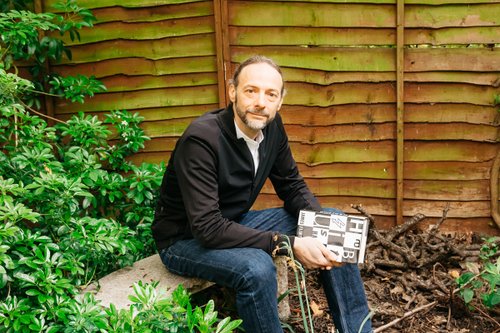
James Flint: from tech journalist to tech for good
As one of the pioneers in tech journalism, James Flint parlayed his extensive experience to create Hospify & champion digital data privacy.
Jun 02, 2021
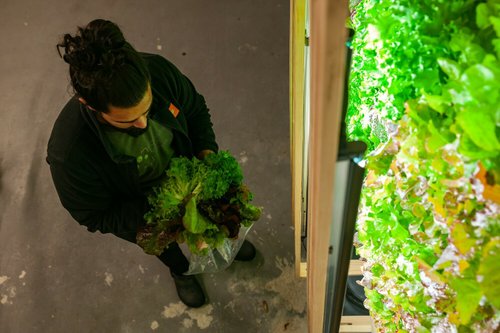
The only way is up: farmers who grow crops without soil or sun
Vertical farming, hailed as the "future of farming", needs a whole new set of skills never before seen in agriculture. What's behind the hype?
Dec 22, 2020
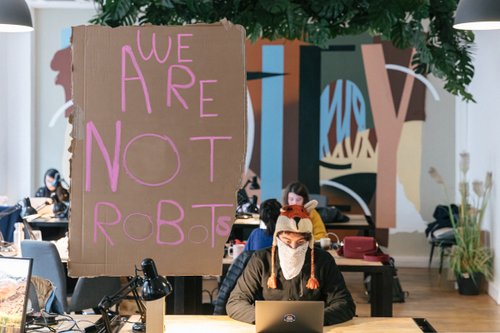
Taking on tyrants: UK tech workers unionise for better rights for all
Everything you need to know about the United Tech and Allied Workers Union (UTAW), UK's latest tech workers' union.
Dec 09, 2020
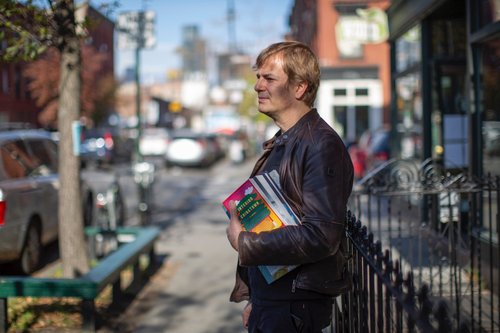
Andy Hunter: from IT to bookshop.org, the underdog taking on Amazon
Bookshop.org's founder tells us about his career in the world of literature, how he was once an 'IT guy' and how he juggles several jobs at once.
Nov 24, 2020
The newsletter that does the job
Want to keep up with the latest articles? Twice a week you can receive stories, jobs, and tips in your inbox.

Looking for your next job?
Over 200,000 people have found a job with Welcome to the Jungle.
Explore jobs